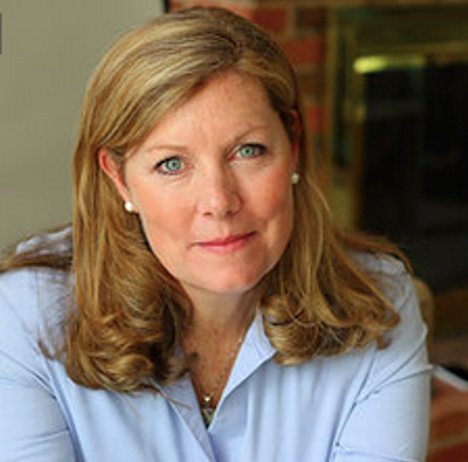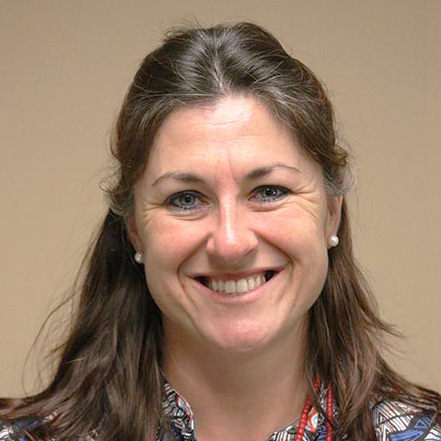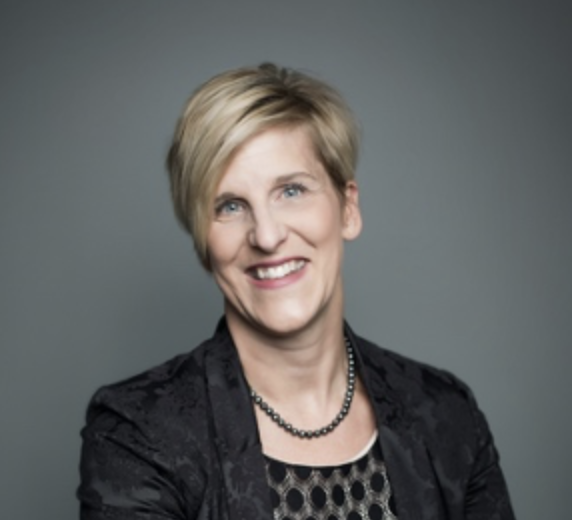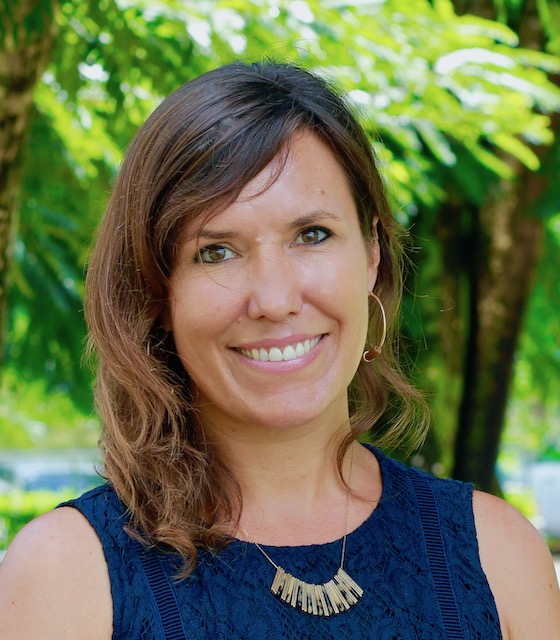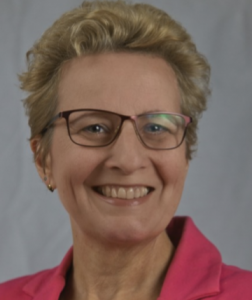Promoting a Gender-Inclusive Hiring Process
By members of the Carney, Sandoe & Associates International Schools Practice
At Carney, Sandoe & Associates, we are aware of the role that search agencies play in shaping the overall make-up of school leadership, both within individual schools and across the collective community of schools. In short, we know that who we identify and promote as strong candidates who meet a school’s particular needs matters a great deal.
Given the longstanding gender inequities in school leadership — the bias toward white menhat still holds today — we are committed to identifying and promoting diverse groups of highly qualified candidates for every school leadership position. We also see it as our job to educate all school search committees and governing boards about the qualities a range of candidates bring to the job and about the overall value of diverse leadership within and among schools. At the same time, we understand that it’s essential to focus energy on expanding the pool and pipeline of candidates for these positions in the future. This tripartite process is at the core of every search we conduct.
Recently, it has come to our attention that in the world of international schools — a vibrant, fast-growing area of K-12 education — the percentage of women heads and other top leaders has been particularly low. According to data from the Academy for International School Leadership (AISH), women heads of international schools have only improved slightly — increasing from 27% to 33% over the past ten years. While it’s good to see improvement, we submit that this percentage of growth is unacceptable, especially in a profession with so many extremely talented, highly competent women.
Our Focus on Gender Equity
For every search, the members of our International Schools Practice build a database of candidates and analyze it to ensure that we are interviewing for equitable access to leadership roles. Many times, this means we seek out and nurture talent, offering to review résumés and cover letters in advance, and holding one-on-one coaching sessions.
Separate from retained searches, we uphold our commitment to supporting women in education by hosting our annual Women’s (Re)Institute. First held in person in 2017 and now having completed its second virtual iteration, the (Re)Institute draws hundreds of women together to engage in workshops, one-on-one career advising, cohort groups, panel presentations, and keynotes related to female empowerment, skill building, and overcoming the unique challenges women face working in education. The event includes a range of sessions designed to help women educators develop their skills, make connections, and understand their leadership options and possibilities. Among the sessions this year, for example, were: “A Woman’s Worth: The Art of Negotiation;” “Living with Imposter Syndrome and Biased Workplaces;” “More than Conversations: A Feminist Approach to Equity Work in International Schools;” “Women, EQ, and Leadership;” and “Huddle (verb): To Gather Your Sister Circle.”
Given the low numbers of women leaders in international schools, this year’s (Re)Institute also included a topic we consider of utmost importance: “Ever Consider Leading an International School?” which was led by CS&A consultants Deb Welch and Karen Neitzel and included presenters Robin Appleby, Head of School at American School in London; Madeleine Hewitt, Executive Director of the Near East South Asia Council of Overseas Schools; and Nancy Le Nezet, Head of School at the Swiss International School in Qatar.
Additionally, Carney Sandoe offers implicit and cognitive bias training for search committees at no extra charge. Our consultants work internally with the Carney Sandoe staff as well, helping us to recognize ways our own identities, cultural perspectives, and biases that may be unconsciously serving as blind spots in our work. To further our organizational commitment to antibias work, Carney Sandoe is also covering the cost this summer for consultants to attend (diversity, equity, inclusion, and justice (DEIJ) professional development of their choice.
We are engaged in this work across the board because we know it’s the right thing to do and because we know diverse leadership teams in schools function at a higher level that monocultural groups and, thus, serve the faculty, staff, and students best. Research makes it clear, for instance, that diverse teams focus more on facts, process those facts more carefully, and are more innovative (Rock and Grant, HBR, Why Diverse Teams are Smarter). The bottom line is that, by committing to helping create diverse leadership teams, we are not just committing to equity and justice, we are also helping to create better decision-making in school leadership teams, boardrooms, and classrooms.
Toward the aim of an equitable gender balance in school leadership, we’re proud of our record of recent appointments of women to senior administrative and leadership positions. Of those recent placements, 70% of them have occurred since 2018.
Female Appointments from Recent International School Searches
| AMERICAN COLLEGE OF SOFIA
President, 2022 |
INTERNATIONAL SCHOOL OF ZUG & LUZERN
Primary School Principal, 2021 |
| AMERICAN COMMUNITY SCHOOL ABU DHABI
Superintendent, 2018 |
THE KAUST SCHOOL
Director, 2019 |
| AMERICAN INTERNATIONAL SCHOOL – VIENNA
Director, 2020 |
KEYSTONE ACADEMY
Executive Head of School, 2022 |
| AMERICAN SCHOOL IN JAPAN
Interim Head of School, 2016 |
LYCÉE FRANÇAIS DE NEW YORK
Head of School, 2018 |
| AMERICAN SCHOOL IN LONDON
Head of School, 2017 Director of Institutional Equity, 2021 |
MADRID MONTESSORI SCHOOL
Head of School, 2020 |
| AMERICAN SCHOOL OF BARCELONA
High School Principal, 2018 |
NEAR EAST SOUTH ASIA COUNCIL OF SCHOOLS
Executive Director, 2017 |
| AMERICAN SCHOOL OF PARIS
Head of School, 2018 |
NISHIMACHI INTERNATIONAL SCHOOL
Head of School, 2019 |
| BASIS SCHOOLS, CHINA
Chief Inspection Officer, 2021 Vice Head of Primary, 2021 |
RIDLEY COLLEGE
Head of Upper School, 2016 |
| BEIJING CITY INTERNATIONAL SCHOOL
Director of College Counseling, 2015 |
SEOUL FOREIGN SCHOOL
Upper School Head, 2021 |
| BENJAMIN FRANKLIN INTERNATIONAL SCHOOL
Head of School, 2021 |
SHANGHAI AMERICAN SCHOOL
Deputy Superintendent, 2014 Middle School Principal, 2014 Elementary School Principal, 2020 Deputy Head of School, 2016 |
| BRANKSOME HALL ASIA
Principal, 2018 |
TAIPEI AMERICAN SCHOOL
Superintendent, 2007 Head of School, 2021 |
| BREWSTER ACADEMY MADRID
Founding Head, 2022 |
UNITED NATIONS INTERNATIONAL SCHOOL
Executive Director, 2013 |
| CHADWICK INTERNATIONAL SCHOOL
Middle School Principal, 2019 |
VIENNA INTERNATIONAL SCHOOL
Director, 2020 |
| COLEGIO AMERICANO DE GUATEMALA
General Director, 2017 |
VIRGIN ISLANDS MONTESSORI & INT’L ACADEMY
Montessori Director, 2019 |
| ESCUELA BILINGÜE INTERNACIONAL
Head of School, 2019 |
WASHINGTON INTERNATIONAL SCHOOL
Head of School, 2018 |
| HONG KONG INTERNATIONAL SCHOOL
Middle School Principal, 2019 |
WESTERN ACADEMY OF BEIJING
Middle School Principal, 2017 |
| INTERNATIONAL SCHOOL OF AMSTERDAM
Director, 2019 |
ZURICH INTERNATIONAL SCHOOL
Director, 2019 |
An Invitation
At Carney Sandoe, we will continue to highlight the value of diversity in school leadership and promote diversity in the hiring process. In particular, we are dedicated to finding new ways to increase the number of women and other underrepresented groups. In this light, we are constantly encouraging talented candidates to apply for positions of interest, even if they believe it may be a bit of a “stretch.” We also help such candidates establish a connection with a search consultant who can advise them on their suitability for different positions and encourage them to test the waters. Meanwhile, we advise search committees that no candidate will check all the boxes of the desired profile, but that we are adept at identifying areas in which a candidate will be an excellent match for a school. We also advise candidates to work with a variety of search firms, since no single firm does all the searches.
For educators aspiring to leadership positions in international schools, this is a particularly good time to be looking. The number of international schools continues to grow at a remarkable rate and all of these schools are searching for administrators (and teachers) who are native English speakers. For those educators who are our candidates, we encourage you to let search committees know where your strengths and interests lie — so we can better align these strengths and interests with the needs of schools. Mostly, though, we encourage educators aspiring to school leadership to step up, cast your net wide, and believe in yourself. We know from experience that the right position will come.
ABOUT THE AUTHORS
This article was contributed by Art Charles, John Chandler, Karen Neitzel, and Deb Welch of the International Schools Practice.

.
As Managing Associate for the International School Practice, Art Charles has done more than 140 senior administrative searches, both in the U.S. and abroad. Prior to coming to CS&A, Art worked in five international schools, most recently as President of International College in Beirut, Lebanon. He also worked as an administrator and teacher at the American College of Sofia, Academia Cotopaxi (Ecuador), The American School in Switzerland, and the American Embassy School (India).

.
John Chandler is a senior consultant. The majority of his work has been in leadership searches for international schools. He has also led searches for U.S. independent schools and has consulted on governance. He has completed more than 120 searches. After several teaching and admissions roles, John served as Head of School at Pingree School (MA) for 14 years before becoming General Director of the Koç School in Istanbul, Turkey. Following Koç, he served as Head of School of Robert College, the oldest American school outside the U.S., also in Istanbul, for seven years.
.
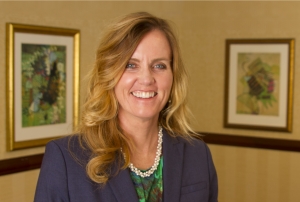
.
Karen Neitzel is a search consultant for the firm’s Head of School, Key Administrator, International Schools, and Catholic Schools Practices. Karen joined CS&A from ‘Iolani School (HI), first serving as Dean of Studies before becoming Associate Head of School. Prior to ‘Iolani, Karen held several leadership roles in the Hood River County School District (OR), including Vice Principal and Principal. She also worked at The Archer School for Girls (CA), where she served as Assistant Head of School, Academic Dean, and Director of Technology.

.
Deb Welch is a senior consultant for the International Schools Practice. For five years, Deb served as CEO of the Academy for International School Heads (AISH), a leading organization among international schools. Her experience working in independent schools is deep and varied. She was the Director of American School of Doha in Qatar, as well as Director of Curriculum, Assessment, and Professional Development; then Deputy Head of School at International School Bangkok. She also has significant consulting experience, having worked as an independent consultant for various international schools and organizations.






